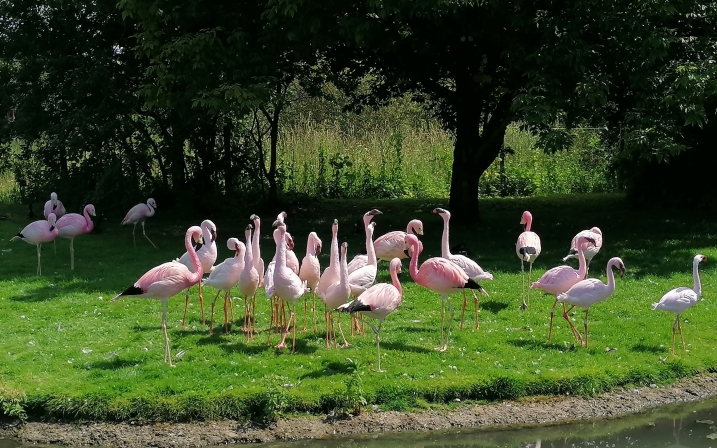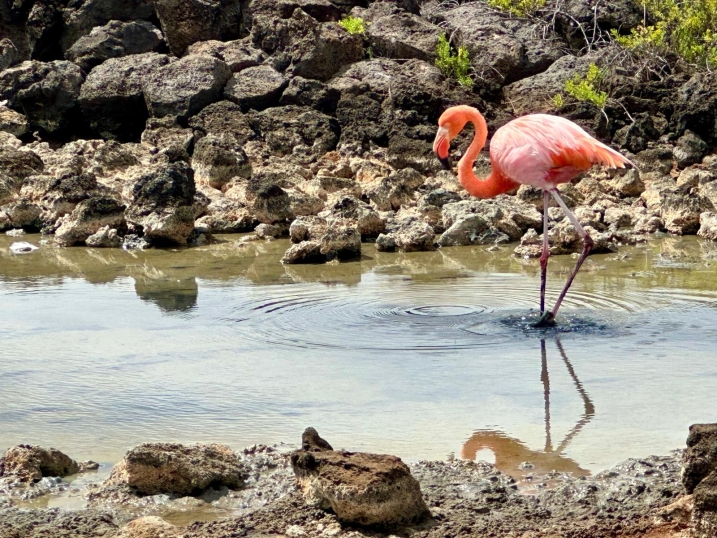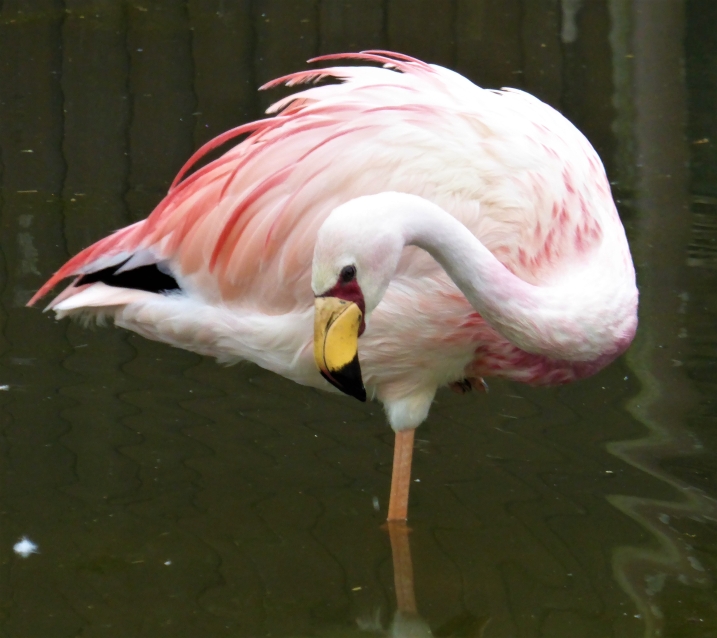New decade, new flamingo news
Looking for some January reading? Why not learn something new about flamingos and their conservation...?
Happy New Year flamingo followers! I hope it’s been a peaceful and suitably festive season of goodwill. A new decade will see more developments in the world of the WWT flamingos; more science and more scrutiny of the flamingo soap opera at our Centres.
WWT engages with flamingos beyond the boundaries of its wetland centres and is interested in the lives of flamingos all around the world. One of the ways we do this is by hosting the IUCN’s Flamingo Specialist Group. If you’re looking for some inspiration and engaging reading to fill your post-Christmas time, then the 2019 edition of the Flamingo Specialist Group’s journal “Flamingo” (original name I know…) is now available free to read on the Flamingo Specialist Group website.

From the largest flamingo species...
WWT is the home of the Flamingo Specialist Group and the birds kept across WWT centres help to inform management and care of flamingo flocks wherever they may be in the world. As the co-chair of the Flamingo Specialist Group, I have the responsibility for putting this journal together. Asking for papers to be sent in, checking they are factually correct and relevant to the aims of the Flamingo Specialist Group, editing, formatting and stitching it all together. It’s great to be able to offer this chance for people working with flamingos to publish their work for free, and for those interested to read it for free too.
At WWT we are always looking for ways to keep developing how we look after our birds, and information gathered from flamingos out in the wild is key to understanding what our birds do when we are looking after them. In this edition of Flamingo there are numerous papers on the ecology of wild flamingos: what they do, where they go, what they need in their habitat to remain healthy. All of this information builds into a rich picture of the daily lives of these animals, which we can then replicate in our living collections.

...to the smallest species...
Publishing Flamingo is a collaborative effort, and two members of the Flamingo Specialist Group steering committee, Dr Felicity Arengo and Dr Arnaud Bechet have particular expertise with wild birds. Dr Arengo researches the ecology of the three South American flamingos, including the rarest of all, the Andean flamingo, and conducts field work in the high wetlands in the Andes to aid in their conservation. Dr Bechet has built his career studying the most widely-distributed species, the greater flamingo and is heavily involved in the long-running flamingo research in the Camargue in France. Dr Arengo, with her expertise in Spanish for working out in South America and Dr Bechet, a native French speaker, provide invaluable assistance in translating work into Spanish and French to increase the accessibility of the paper published in Flamingo.
The work performed the scientists that have published their work in this edition of Flamingo is crucial to conservation efforts. We can identify what types of conservation work are best for keeping flamingo populations health and sustainable. We can share good practice of developing wetland sites to make them more attractive to flamingos. And we can explain how to directly help flamingos that are in need of rescue and rehabilitation due to human-made changes to their habitat.
Flamingos might be tougher than they look, adapted to surviving in harsh conditions in high altitude, highly saline, extremely hot, extremely cold and extremely toxic wetlands across the globe. But they are not tough enough to withstand the effects of habitat loss and environmental disruption that will come with climate change. Flamingos can live and breed in only a handful of places. In this new decade, it is vitally important that we get to grips with climate change and take real action to protect and conserve wetland habitats to prevent any loss of biodiversity, including flamingos. So please visit your local WWT centre and support the work of the WWT as it engages with global conservation organisations to tackle climate change. The flamingos and all other wetland animals will thank you.

...and to the rarest. WWT and the FSG love all of the flamingos and their wetland habitats.



